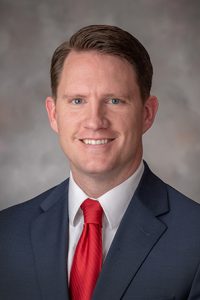Bill would ban racial, gender ‘scapegoating’ in education and training
Nebraska public schools, public postsecondary institutions and government entities would be prohibited from teaching, advocating, encouraging, promoting or acting upon race or sex “scapegoating” or stereotyping and from discriminating against students because of their political ideology under a bill heard Feb. 24 by the Government, Military and Veterans Affairs Committee.

LB1077, introduced by Blair Sen. Ben Hansen, defines race and sex scapegoating as assigning fault, blame or bias to a race or sex or to members of a race or sex or claiming that, consciously or unconsciously, by virtue of an individual’s race or sex, that members of any race are inherently racist or are inherently inclined to oppress others or that members of a sex are inherently sexist or inclined to oppress others.
The bill defines race stereotyping as ascribing character traits, values, moral and ethical codes, privileges, status or beliefs to a race or to an individual because of the individual’s race.
Also prohibited under the bill would be teaching that the U.S. or the state of Nebraska is fundamentally or systemically racist or sexist.
An individual who believes an institution has violated the bill’s provisions could file a complaint with the state attorney general’s office. The state would withhold funding from schools found to be in violation of the bill’s provisions.
Hansen said the bill’s intent is not to prohibit teaching of America’s history of racism or sexism, but rather to ensure that no student feels “discomfort, guilt, anguish or any other form of psychological distress on account of their race or sex” while in the classroom.
“History is objective,” Hansen said. “It should be taught without subjective editorializing that assigns fault to a whole race or sex.”
Kate Anderson, a senior at the University of Nebraska-Omaha, testified in support of LB1077. During a political science class, Anderson said she was required to read books and heard articles that suggested that white Americans have rigid and bigoted definitions of what it is to be an American and that racism led to Donald Trump being elected president in 2016.
“I did not appreciate that race was the predominant topic of the entire semester,” she said. “I never intended to pay for my professor to shame my race in the name of higher education.”
Tyler Henningsey also spoke in support of the bill, which he said would promote education instead of indoctrination.
Dozens of students, educators and administrators testified against the bill, many raising concerns that it would discourage accurate teaching of American history.
Richard Moberly, dean of the University of Nebraska College of Law, spoke against LB1077 on behalf of the University of Nebraska System. He said the bill’s language is broad and vague and would subject universities to the “speech police.”
“[It] would chill speech and make our educational institutions weaker rather than stronger,” Moberly said.
Edward Ventura Jr. also testified in opposition. He said America cannot become an anti-racist society unless individuals have uncomfortable conversations.
“Teaching through an anti-racist lens means helping students understand racism’s origins and guises, past and present, so they can act to disrupt white supremacy,” Ventura said.
Also speaking against LB1077 was history teacher Jake Bogus. He said the bill would “rob” students of the opportunity to learn about individuals who are different from themselves.
“Education isn’t just about algebra and proper punctuation, it’s about the reality of the world that we live in,” Bogus said.
The committee took no immediate action on the bill.

